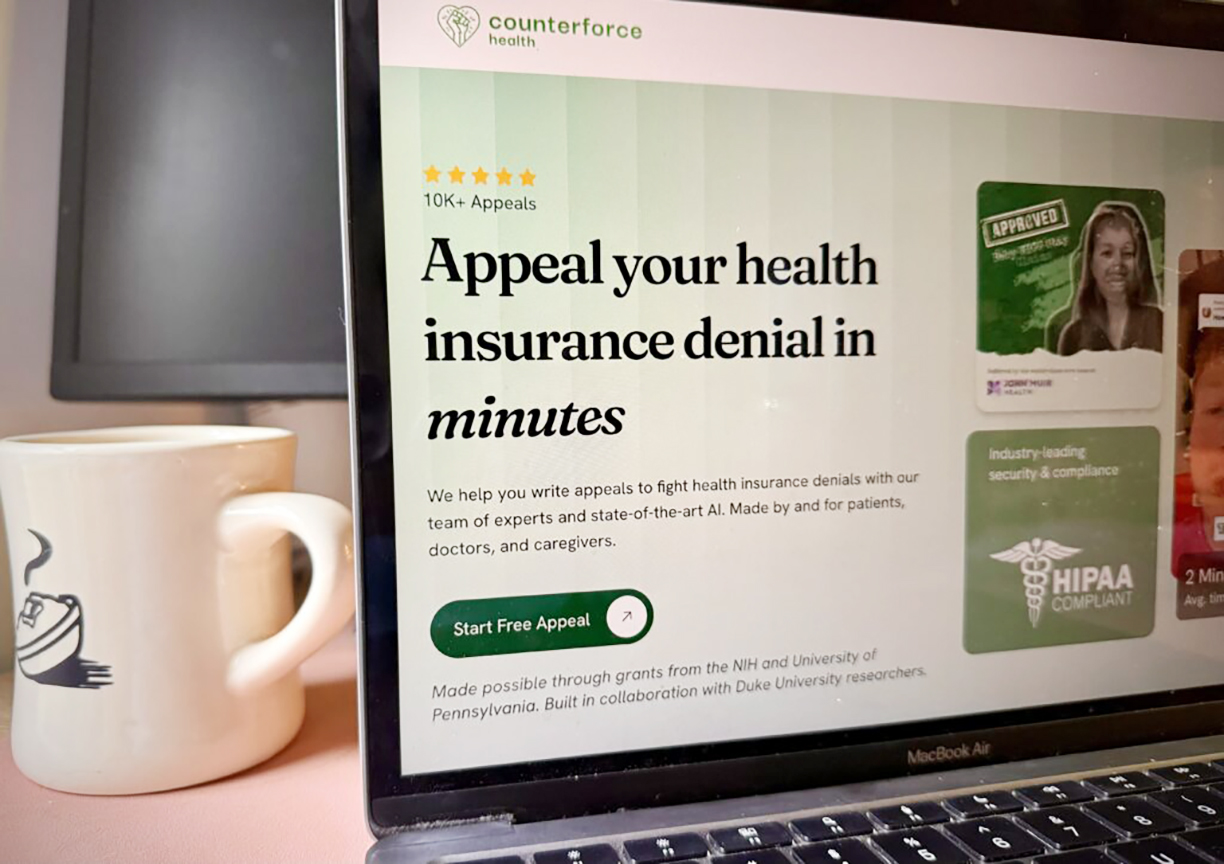As states work to curb health insurers’ use of artificial intelligence, patients and doctors are arming themselves with AI tools to combat claim denials, prior authorizations and soaring medical bills.
Several companies and nonprofits have launched AI-powered tools to help patients get their insurance claims paid and manage their byzantine medical bills, creating a robotic tug of war over who gets care and who pays the bill.
Sheer Health, a three-year-old company that helps patients and providers navigate health insurance and billing, now has an app that allows consumers to connect their health insurance account, download medical bills and claims, and ask questions about deductibles, co-pays and covered benefits.
“You would think there would be some kind of technology that could explain in real English why I’m getting a bill for $1,500,” said co-founder Jeff Witten. The program uses both AI and humans to provide answers for free, he said. Patients who want additional support disputing a denied claim or handling out-of-network reimbursements can pay Sheer Health to handle these for them.
In North Carolina, the nonprofit Counterforce Health designed an AI assistant to help patients appeal their denied health insurance claims and fight large medical bills. The free service uses AI models to analyze a patient’s rejection letter, then reviews the patient’s policy and outside medical research to write a personalized appeal letter.
Other consumer-focused services use AI to detect billing errors or analyze medical jargon. Some patients even turn to AI chatbots like Grok for help.
A quarter of adults under 30 said they use an AI chatbot at least once a month for health information or advice, according to a survey by healthcare research association KFF released in August 2024. But most adults said they weren’t sure the health information was accurate.
Meanwhile, state lawmakers on both sides are scrambling to keep pace, passing new regulations that govern how insurers, doctors and others use AI in health care. Already this year, more than a dozen states have passed laws regulating AI in health care, according to Manatt, a consulting firm.
“It doesn’t seem like a satisfactory outcome to have two robots arguing over whether a patient should access a particular type of care,” said Carmel Shachar, clinical assistant professor of law and chair of the School of Law and Health Policy at Harvard Law School.
“We don’t want to get on an AI-enabled treadmill that just speeds up.”
A black box
Healthcare can feel like a black box. If your doctor says you need surgery, for example, the cost depends on a dizzying number of factors, including your health insurance provider, your specific health plan, its copay requirements, your deductible, where you live, the facility where the surgery will be performed, whether that facility and your doctor are in network, and your specific diagnosis.
Some insurers may require prior authorization before a surgical procedure is approved. This may require extensive medical documentation. After surgery, the resulting bill can be difficult to analyze.
Witten, of Sheer Health, said his company has seen thousands of cases of patients whose doctors recommend a certain procedure, such as surgery, and then days before surgery the patient learns that insurance doesn’t approve it.
In recent years, as more health insurance companies have turned to AI to automate claims processing and prior authorizations, the share of denied claims has increased. This year, 41% of doctors and other providers said their applications were denied more than 10% of the time, compared to 30% of providers who said that three years ago, according to a September report from credit reporting company Experian.
Insurers in Affordable Care Act markets denied nearly one in five in-network claims in 2023, compared to 17% in 2021, and more than a third of out-of-network claims, according to the most recent available data from KFF.
Insurance giant UnitedHealth Group has been criticized in the media and by federal lawmakers for using algorithms to systematically deny care to seniors, while Humana and other insurers face lawsuits and regulatory investigations that allege they used sophisticated algorithms to block or deny coverage for medical procedures.










